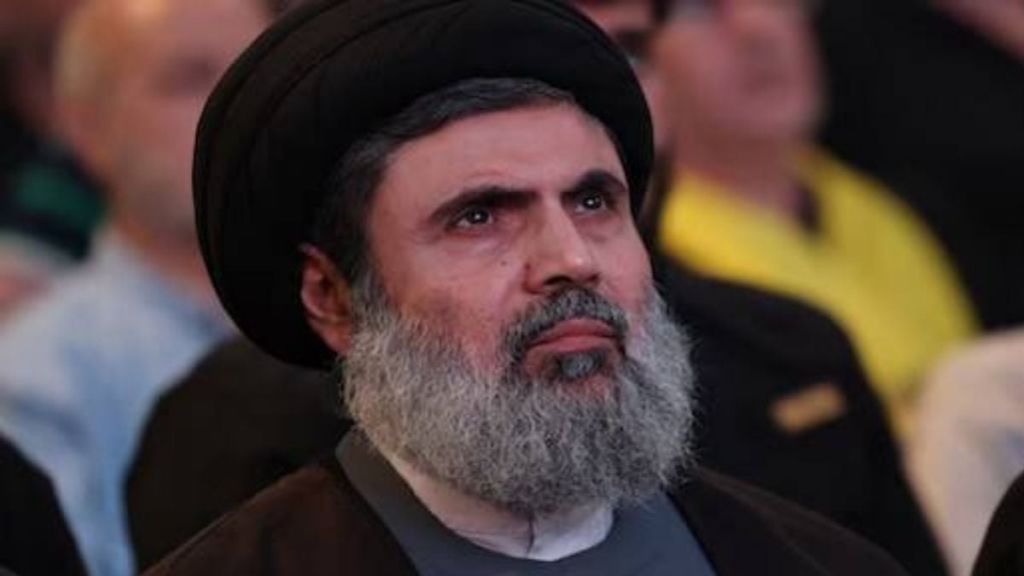
An Israeli airstrike in Beirut has reportedly targeted senior Hezbollah official Hashem Safieddine, widely viewed as the successor to the slain Hezbollah leader Hassan Nasrallah. The news of Nasrallah's likely successor was first reported by Reuters, citing sources. However, no official confirmation has come from either the Israeli Defense Forces (IDF) or Hezbollah in Lebanon.
The attack reportedly occurred at midnight on Thursday, with Israel launching a heavy barrage of airstrikes in Beirut. According to The New York Times, Safieddine was believed to be attending a meeting of senior Hezbollah officials in an underground bunker at the time of the strikes.
The bombardment was one of the heaviest seen in Beirut since the death of Nasrallah. Reports from Axios news agency suggest that the scale of the strike was even larger than the one that killed Nasrallah, although the number of casualties has not yet been confirmed.
#Breaking Major airstrikes have targeted Hashem Safieddine, the heir to #Hezbollah, in the Laylaki, Kafa’at, and University neighborhoods, just 4 km from #Beirut’s Airport. These strikes are reminiscent of those that leveled buildings in the attack that killed Nasrallah. #Lebanon pic.twitter.com/HtuaZpuxoC
— Basha باشا (@BashaReport) October 3, 2024
Who Is Hashem Safieddine?
Hashem Safieddine has been a central figure in Hezbollah’s leadership. He is involved in its political affairs and serves on the Jihad Council, the body responsible for overseeing Hezbollah’s military operations. Safieddine, a cousin of Nasrallah, has long been considered the second-in-command within the organization and holds strong ties with the Iranian regime.
Over the years, Nasrallah entrusted Safieddine with a variety of key roles in Hezbollah's decision-making councils, including some that operate behind the scenes. Safieddine has also served as a spokesperson for the group on numerous occasions. In 2017, the US State Department designated Safieddine as a terrorist, and Saudi Arabia has also imposed sanctions on him for his role in Hezbollah.
Another Hezbollah Top Official Killed: IDF
In addition to the attack on Safieddine, Israel has claimed responsibility for the killing of another senior Hezbollah official, Mohammed Anisi. Anisi was reportedly involved in Hezbollah’s development of precision-guided missiles, and he was targeted in a separate Israeli airstrike on Hezbollah's intelligence branch in Beirut. Hezbollah has not issued any statements regarding either strike.
Mahmoud Yusef Anisi, a senior terrorist involved in Hezbollah’s precision-guided missile manufacturing chain in Lebanon.
— Israel Defense Forces (@IDF) October 3, 2024
Anisi joined Hezbollah over 15 years ago and was one of the leaders of the Hezbollah PGM campaign in Lebanon. He was a significant source of knowledge with… pic.twitter.com/AJ6BpYOL4s
Thursday's attack was part of an intensifying Israeli offensive against Hezbollah. The airstrikes led to a series of massive explosions that rocked Beirut’s southern suburbs, resulting in multiple deaths and causing buildings to shake across the city. While the full extent of the damage and casualties remains unclear, the strikes have marked a significant escalation in the ongoing conflict between Israel and Hezbollah.